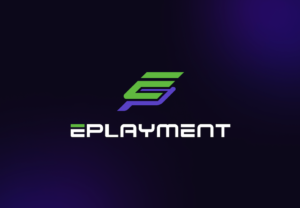SOCIAL SCIENCE | Get ready for tech savvy Gen Z!
Those born after 1996, now collectively referred to as Generation Z, are starting to enter the labor force and by 2020, they will account for 20% of the working population.

The future has arrived. Those born after 1996, now collectively referred to as Generation Z, are starting to enter the labor force and by 2020, they will account for 20% of the working population.
In time for this year’s graduation season, organizations must ready themselves in welcoming fresh graduates to their fold, unifying their unique strengths with a multi-generational workforce. The blend of young and old hands has always been a hurdle for employers but Gen Z may yet present a particular challenge to most companies. For starters, these young guns are digital natives to the core. They grew up and thrived in in the presence of digital technology, i.e. smart phones, laptops, tablets, home technology systems, and social media, that will likely define their role in any organization.
Between August and September 2018, Dell Technologies surveyed 12,000 high school and college students from 17 countries including the Philippines about their views on technology and their future careers. Key findings from the research study reveal how business leaders can tap the immense potentials of Gen Zers in a diverse future-ready workforce.
Gen Z wants to work with cutting edge technologies. Some 88% of Filipino survey respondents aspire to work with new technologies while 97% will consider the type of technology provided as important when considering two similar jobs.
Advanced technology will entice Gen Z job candidates so organizations are encouraged to take a tech-first approach – from the hiring process, to on-boarding, to the daily work experience.
Gen Zers are eager to share their knowledge. 86% Filipinos are willing to be technology mentors to others on the job and 78% can picture themselves as “digital ambassadors” for their company.
To reduce an inevitable ‘digital divide’ among generations at the workplace, business leaders should look into tech mentorship programs that address variances in IT competency and build a well-integrated workforce
Gen Zers are confident about their tech skills, which doesn’t necessarily equate to workforce readiness. 88% Filipinos ranked their technology literacy as good or excellent, 68% Filipinos are confident that they have the technology skills employers want than non-tech skills while 96% Filipinos expressed concerns over starting at work
Organizations that develop upskilling initiatives (including internships and rotation programs) for these digital natives as well as create cross-functional teams with complementary skillsets will benefit from fresh approaches in problem-solving and knowledge exchange opportunities.
Beyond income, Gen Z considers other things as important for their work. Gen Z wants more than just money for their work. 53% Filipinos want to work for socially or environmentally responsible organizations, 67% look for the ability to learn new skills and have new experiences while 52% want work that has meaning and purpose beyond just getting paid.
Employers should encourage corporate social responsibility initiatives as well as have a strong purpose beyond business. Learning and development at the work place will also serve as key levers to attract and retain Gen Z candidates.
Gen Zers are eager for more human interaction. 53% Filipinos choose in-person communication as the preferred method of interaction with coworkers, with text ranked last, 91% say there are work-related benefits from social media including communicating with people in the same profession; 77% expect to learn on the job from coworkers or other people – not online, while 74% Filipinos prefer to be part of a team rather than working independently
Organizations should build a flexible work environment that serves a diverse set of work styles with a strong blend of in-person and virtual collaborative workspaces as well as immersive tools such as augmented and virtual reality to enable teams to deliver their best output.
Aptly labeled “digital natives,” Gen Zers have lived their entire lives during a period of transformative technologies. Consequently, as Gen Zers enter the global workforce, they are innately comfortable with the use and ubiquity of technology, especially at work.
Employers should well understand that Gen Zers not only are technically savvy, but also expect technology to be a natural extension of their learning and work 4experiences. Companies should prepare to tap these digital advantages as they also help bridge the divide with the older yet natively smart generations.



